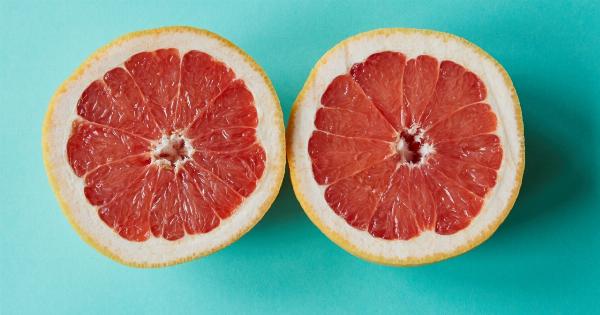Kidney stones are hard deposits that form in the kidneys when waste products in the urine crystallize. These stones can be extremely painful and may require medical intervention to remove.
Fortunately, there are several best practices you can follow to help prevent the formation of kidney stones and reduce your risk of developing this painful condition. In this article, we will explore these practices and provide useful tips for maintaining good kidney health.
1. Stay Hydrated
One of the most effective ways to prevent kidney stones is to drink plenty of fluids, especially water. Staying hydrated helps dilute the concentration of minerals and salts in the urine, making it less likely for stones to form.
Aim to drink at least 8 glasses of water per day, and increase your intake during hot weather or when engaging in rigorous physical activity.
2. Eat a Balanced Diet
The food you consume plays a crucial role in kidney health. A balanced diet that is low in sodium, oxalate, and animal protein can reduce your risk of developing kidney stones.
Foods rich in calcium, such as milk, cheese, and yogurt, are beneficial as they can bind with oxalate in the digestive system, preventing the formation of stones. Additionally, include a variety of fruits, vegetables, and whole grains in your diet to ensure you receive essential nutrients and promote good overall health.
3. Limit Sodium Intake
Excessive sodium intake can lead to an increased risk of kidney stone formation. When there is too much sodium in the body, it increases the amount of calcium in the urine, which can contribute to stone formation.
To reduce your sodium intake, avoid adding salt to your meals and opt for fresh, unprocessed foods. Be mindful of hidden sodium in canned goods, condiments, and processed snacks.
4. Monitor Oxalate Consumption
Oxalate is a naturally occurring substance found in many foods. When oxalate combines with calcium in the urine, it can form kidney stones. If you have a history of kidney stones, it is important to monitor your oxalate consumption.
Foods high in oxalate include spinach, beetroot, rhubarb, and almonds. However, it is not necessary to completely eliminate these foods from your diet. Moderation is key, and pairing oxalate-rich foods with calcium-rich foods can help reduce the risk.
5. Choose Lean Proteins
Diets rich in animal protein can increase the risk of kidney stones, especially if consumed in excess.
Reducing your intake of animal proteins such as red meat, poultry, and seafood can lower the amount of uric acid in the urine, reducing the likelihood of stone formation. Instead, opt for lean proteins such as legumes, tofu, and low-fat dairy products as healthier alternatives.
6. Limit Carbonated Beverages
Carbonated beverages, such as soda and certain energy drinks, contain phosphoric acid, which can contribute to the formation of kidney stones. Phosphoric acid increases the levels of acid in the urine, making it easier for stones to form.
Limiting your consumption of carbonated beverages and opting for healthier alternatives like water or herbal tea is advisable to protect your kidney health.
7. Maintain a Healthy Weight
Being overweight or obese can increase your risk of developing kidney stones. A healthy weight can be achieved through a combination of regular physical exercise and a balanced diet.
Engaging in regular exercise helps maintain proper metabolic function and reduces the likelihood of weight-related conditions like diabetes and hypertension, which are risk factors for kidney stone formation.
8. Avoid Vitamin C Supplements
Although vitamin C is essential for good health, excessive intake through supplements can contribute to kidney stone formation. Large doses of vitamin C are converted into oxalate by the body, which can increase the risk of stone formation.
It is generally recommended to obtain your vitamin C through natural food sources like fruits and vegetables, rather than relying solely on supplements.
9. Reduce Stress Levels
High-stress levels can impact your overall health, including kidney function. Chronic stress can lead to dehydration, poor eating habits, and inadequate sleep, all of which can increase the risk of developing kidney stones.
Incorporate stress-reducing activities into your daily routine, such as meditation, yoga, or engaging in hobbies you enjoy. These practices can promote overall well-being and contribute to healthy kidneys.
10. Get Regular Kidney Check-ups
Regular check-ups with your healthcare provider are essential for maintaining good kidney health. During these visits, your doctor can assess your kidney function, identify any potential issues, and provide appropriate guidance.
If you have a family history of kidney stones or other kidney-related conditions, it is particularly important to stay proactive and informed about your kidney health.






























